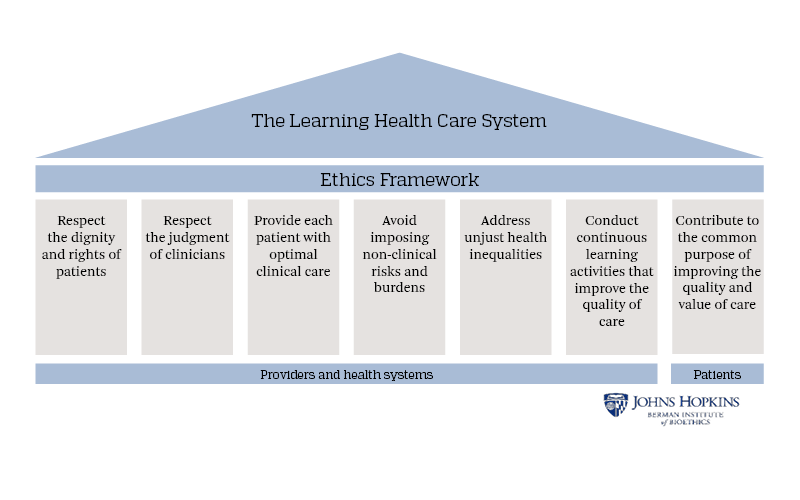Researchers, health care systems administrators, payers, and purchasers
We use the term “judgment” broadly to mean the clinician’s considered beliefs about how best to care for a patient in light of multiple considerations and influences, including personal professional experience, the experience of colleagues and mentors, scientific evidence, and the clinician’s understanding of the patient’s values and priorities. However, one problem with the obligation to respect clinician judgments is that even the most well-intentioned judgments of clinicians can be subject to some form of bias. A key precept of evidence-based medicine is that clinician judgment may not result in the best health outcomes for patients, especially when there is an absence of good empirical evidence or that evidence does not factor in the forming of the judgment. When learning activities target areas in which there is clinical uncertainty about best practices or limited empirical evidence, the likelihood that unrestricted clinician judgment will advance the health interests of patients is lessened, and the importance of respecting clinician judgment is weakened.
